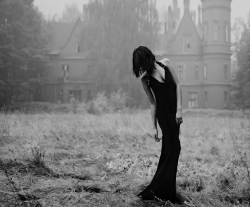
Never, in 24 years of blackout drinking, did I remember falling.
But I did. I must have.
Many times I came to, flat and heavy on the floor, where I had landed, like a tree too top-heavy for weakened roots. My glass holding whatever alcohol I had been drinking would be lying on its side nearby. Empty, of course.
Waste not, want not.
This does not happen anymore. Today marks 313 days sober.
And it is time for a check-in.
Gratitudes I have include never falling on a cat, my current sobriety, a new, supportive network of understanding people in my life and the opportunity to make choices, many ones, whereas before, my only choice was what types of alcohol I would be drinking that day.
Overall, I like this strange, new condition called sobriety. I have never had it, for I was an alcoholic long before I began drinking. Alcoholism is a disease, one that starts in the mind, deep within the psyche.
Always I knew that when I began drinking—never “if,” always “when”—I would like it. A lot. It never occurred to me not to drink, that my obsessive and addictive nature might make it dangerous for me, and for anyone around me.
But until I did start drinking, I turned my attention to other addictions: exercise, getting the best grades, earning the most academic honors, not eating, my weight, self-harm.
My obsessions veered toward the shadows and included such subjects as suicide, murder, serial killers, and the sickest “monster” films, those that showed people doing horrible things to other people, usually scientists or researchers turning test subjects into something other than what they were, erasing their identity, their very existence.
This cruelty and anti-social behavior horrified me, yet I could not look away. Not then.
We all have areas in which we need to grow, to learn how to stretch properly, and then to do so. The area I am focusing on now is learning to live sober—both physically and emotionally. Physical sobriety is not that tricky to accomplish. Just do not use. This is simple enough, but not always easy.
That is where emotional sobriety comes in. But emotional sobriety is neither as simple nor as easy as its corporeal counterpart, which is hard enough. Emotional sobriety involves maturity, responsibility, patience, tolerance, and yes, love. For someone like me who has never practiced such lofty principles, every minute is a lesson, every person a teacher, the world a classroom.
A notion is seeping into my head, one that whispers this will be a lifetime’s work. It begins now. The learning is renewed with every action I take: snatches of a song, a rainbow glimpsed, a decision to meet a gaze and smile rather than look down and hurry away to be alone.

In former days I would pump my fist and chant my religion: Change! Then I slowly shriveled into a pale reference to myself, overcome by fear, needing the familiar sorrow of uninterrupted sameness to function. Yet I never, ever felt safe.
Those monsters that horrified me were real—are real—and living in my head. I had been trying to escape from aspects of myself all this time. Now I am learning that safety lies neither in dull familiarity nor in strange, revolutionary actions, but rather in a personal willingness to serenely accept what is, who I am in the present, who you are in the present. Tomorrow I—and you—will be someone different.
Self-image is elusive, and all I can do is concentrate on right now, on maintaining sobriety in this present manifestation, in this breath. Physical and emotional sobriety live here and now only, solid in their current existence. Together, they turn the key that locks the monsters away. Together, they keep watch.
Hand in hand, in this moment.
Love elephant and want to go steady?
Sign up for our (curated) daily and weekly newsletters!
Editor: Rachel Nussbaum
Photos: elephant journal archives











Read 0 comments and reply